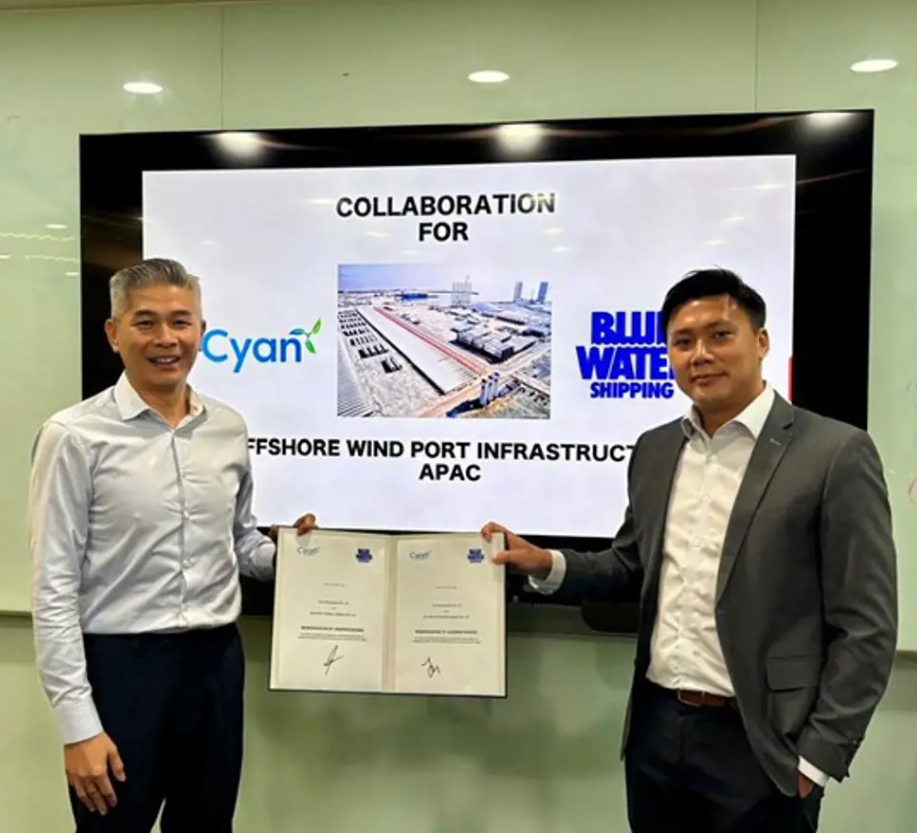Cyan Renewables, based in Singapore, and Denmark’s Blue Water Shipping have signed a Memorandum of Understanding (MoU) to collaborate on logistical services for the offshore wind sector in the Asia-Pacific (APAC) region.
The MoU outlines the partners’ commitment to providing a comprehensive range of logistical services, including ocean and road transport of offshore wind components, route surveys, and port marshalling yard setups. They aim to leverage their combined expertise and resources to develop logistical solutions and explore opportunities for establishing marshalling ports to support the offshore wind industry in the APAC region.
Lee Keng Lin, CEO of Cyan Renewables, stated, “This collaboration with Blue Water comes at a critical time of robust growth in Asia’s offshore wind industry. By merging our expertise, we can streamline the supply chain and manage the supply of critical components efficiently, supporting the region’s renewable energy expansion.”
Both companies emphasized their dedication to addressing logistical challenges, particularly around the supply of essential components and supporting offshore wind installation, operations, and maintenance (O&M).
Jason Goh, Regional Managing Director of Asia at Blue Water, said, “Through this partnership, we aim to tackle key logistical challenges, contributing to the sustainable growth of the offshore wind industry and advancing the region’s renewable energy transition.”
Cyan Renewables was launched in September 2022 and soon established a European operations headquarters in Denmark. Earlier this year, the company acquired a significant stake in Sentinel Marine to bolster its position in the UK market. In May, Cyan Renewables partnered with Ocean Infinity to provide services for offshore wind projects in APAC.
Blue Water Shipping manages 2 million square meters and handles over 10,000 wind components at the port of Esbjerg, making it one of the largest global wind terminal operators.
Follow more updates on offshore wind industry news.
Original Story at www.offshorewind.biz
